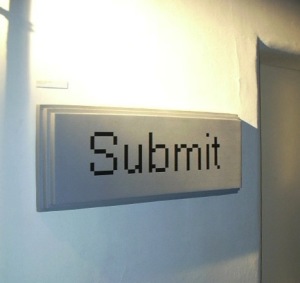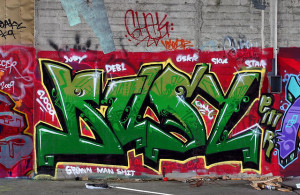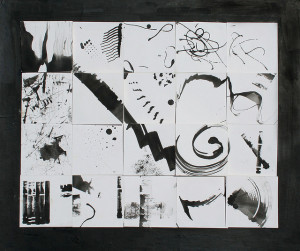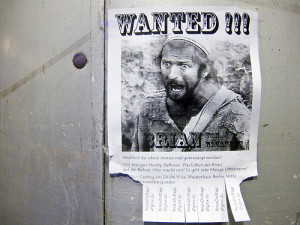
CC image Submit Button courtesy of johannes p osterhoff on Flickr. Some rights reserved.
Has anyone else noticed that submitting work for publication involves a lot of decision-making?
You need to figure out which piece you want to submit. Which means you have to figure out if it’s ready to submit. Which means you need to make a lot of editing decisions, and before you know it, you might be sucked into a total re-write.
You need to figure out where you’re going to submit it. This involves the monumental task of finding places that publish. Do I want to publish online or in print or both? What genre am I looking at — or more than one? Am I willing to pay a reading fee? How much? Do I want to consider contests?
What are the deadlines? What are the guidelines? Do I need to trim words? Add words? What font and spacing do I need to use? Have I put the appropriate contact and identifying information in my piece (or refrained from using it if asked)? Dammit when was that deadline again? OK, next market!
Then there is the actual packaging. Find the submission website. Click through the options, enter the information, upload the file (this stage involves a revisiting of all the previous questions, as to whether the manuscript is ready, whether this is the best work, if I should edit it some more, if this is really the venue for me, whether I’ve formatted everything according to their guidelines, etc etc etc), SUBMIT.
This spring, I began the process of submitting in earnest. I’ve got all sorts of flotsam and jetsam pieces floating around, and I need to actually send them on their way. Along with a group of other people who were using each other for mutual support, I gathered to talk about places to submit what types of writing, and pulling together my choices for what I wanted to submit and where. The idea was to get at least six submissions out that day.
To be honest, I haven’t gotten to that last button yet [SUBMIT!], because I’ve been waylaid by all the other stages.
Dilemmas, dilemmas
First, I thought I had all these pieces ready. Turns out, I didn’t, because I rejected them for one reason or another. Only two or three were close enough to send-worthy, and even these, I wanted to edit.
Then I looked up a number of promising venues to submit these two pieces. That one sentence describes more than an hour’s worth of research — see paragraphs 3 and 4, above. Finally, I got my targets organized, and went back to my chosen pieces to make a few — only minor, really — fine-tuning changes.
The time for our group to meet ended, and I still hadn’t submitted a thing. That’s fine, I told myself. I can go home, have lunch, refuel the brain, and finish up the task from there.
You know what happened to that.
The death of good intentions in the fires of creative flip-flopping
My good intentions DID carry over, at least for a little while. I sat down to make the final polishing-edits on the one piece. The more I pulled it together, the better I felt about the prose, and I lost track of the time going by. When I got up for a drink of water, the afternoon was gone.
Damn. I had had other plans for the rest of my day. After all, I was going to submit in the morning, so all the rest of the hours could be allocated for other things.
That’s fine, I told myself, as I had to make a few phone calls and buy food for dinner. I have the rest of the weekend. I have the rest of the week — by next weekend, this will all be taken care of.
I could write you a list of all the other things I had to do during that week, but I won’t. It’s exhausting just thinking about it.
Research shows that we have a finite amount of energy for decision-making processes. Making a decision is a lot of work for the brain. We may start out fresh in the morning (or not, if you’re me, and the alarm goes off way too early), but throughout the day we deplete our stores of mental energy through use. Come mid-afternoon, I’m tapped out. Which is sort of sad, since I’m doing work for other people for most of the day, and my own time in the evening is then relegated to a period of vegetation on the couch, with a restorative book in hand or Netflix queued up on the computer… ah brainlessness… Pending the decision on what I’m going to watch or read, of course.
It seems to me that I’m just too stubborn. My will will not submit.
== ==
What about you? Do you submit?




